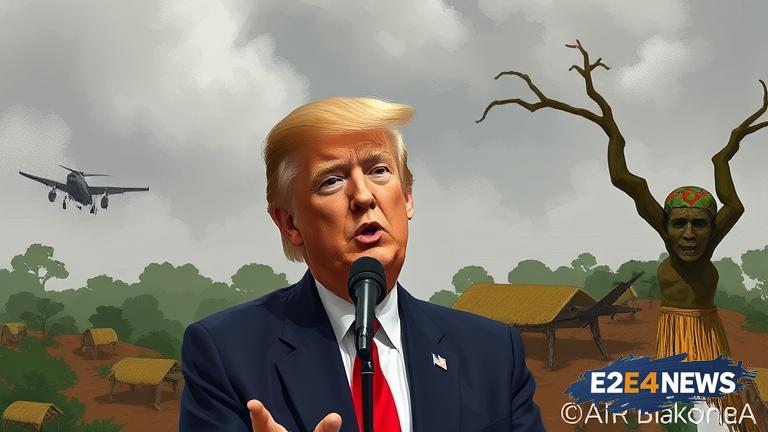The Democratic Republic of Congo has been plagued by conflict and violence for decades, with various armed groups and militias vying for control. Recently, former US President Donald Trump claimed to have ended the war in Congo, a statement that has been met with widespread skepticism and criticism. According to Trump, his administration’s efforts led to the cessation of hostilities in the region. However, people on the ground in Congo say that this is not true, and that the conflict is still ongoing. In fact, many areas of the country are still experiencing high levels of violence and instability. The United Nations and other international organizations have also reported that the situation in Congo remains dire, with millions of people displaced and in need of humanitarian assistance. Despite Trump’s claims, the Congo war is a complex and multifaceted issue that cannot be reduced to a simple statement. The conflict involves numerous armed groups, including the M23 rebel group, which has been responsible for significant human rights abuses. The Congolese government has also been accused of committing atrocities, and the situation is further complicated by the presence of foreign powers and interests. The international community has been working to address the crisis in Congo, but progress has been slow and uneven. The African Union and the European Union have both launched initiatives aimed at promoting peace and stability in the region, but more needs to be done to address the root causes of the conflict. The Congo war has had a devastating impact on the local population, with millions of people forced to flee their homes and seek refuge in other parts of the country or in neighboring nations. The humanitarian situation is dire, with many people lacking access to basic necessities like food, water, and healthcare. The conflict has also had a significant impact on the environment, with deforestation and pollution becoming major concerns. The Congo Basin is home to a vast array of biodiversity, and the conflict has put many of these species at risk. The international community must take a more nuanced and comprehensive approach to addressing the crisis in Congo, one that takes into account the complex historical, cultural, and economic factors that are driving the conflict. This includes providing support for local peace initiatives, promoting economic development and stability, and holding those responsible for human rights abuses accountable. The Congolese people deserve a lasting and sustainable peace, and it is up to the international community to help make this a reality. The situation in Congo is a stark reminder of the need for effective and sustained international cooperation to address the world’s most pressing challenges. As the international community continues to grapple with the complexities of the Congo conflict, it is clear that there is no easy solution. However, by working together and taking a comprehensive and nuanced approach, it is possible to make progress towards a more peaceful and stable future for the people of Congo. The claim by Trump that he has ended the war in Congo is a stark reminder of the need for accurate and reliable information, and the dangers of misinformation and propaganda. The international community must be vigilant in its pursuit of truth and accuracy, and must hold leaders accountable for their words and actions. In conclusion, the situation in Congo is complex and multifaceted, and requires a comprehensive and nuanced approach to address the root causes of the conflict. The international community must work together to promote peace and stability in the region, and to hold those responsible for human rights abuses accountable. The Congolese people deserve a lasting and sustainable peace, and it is up to the international community to help make this a reality.





